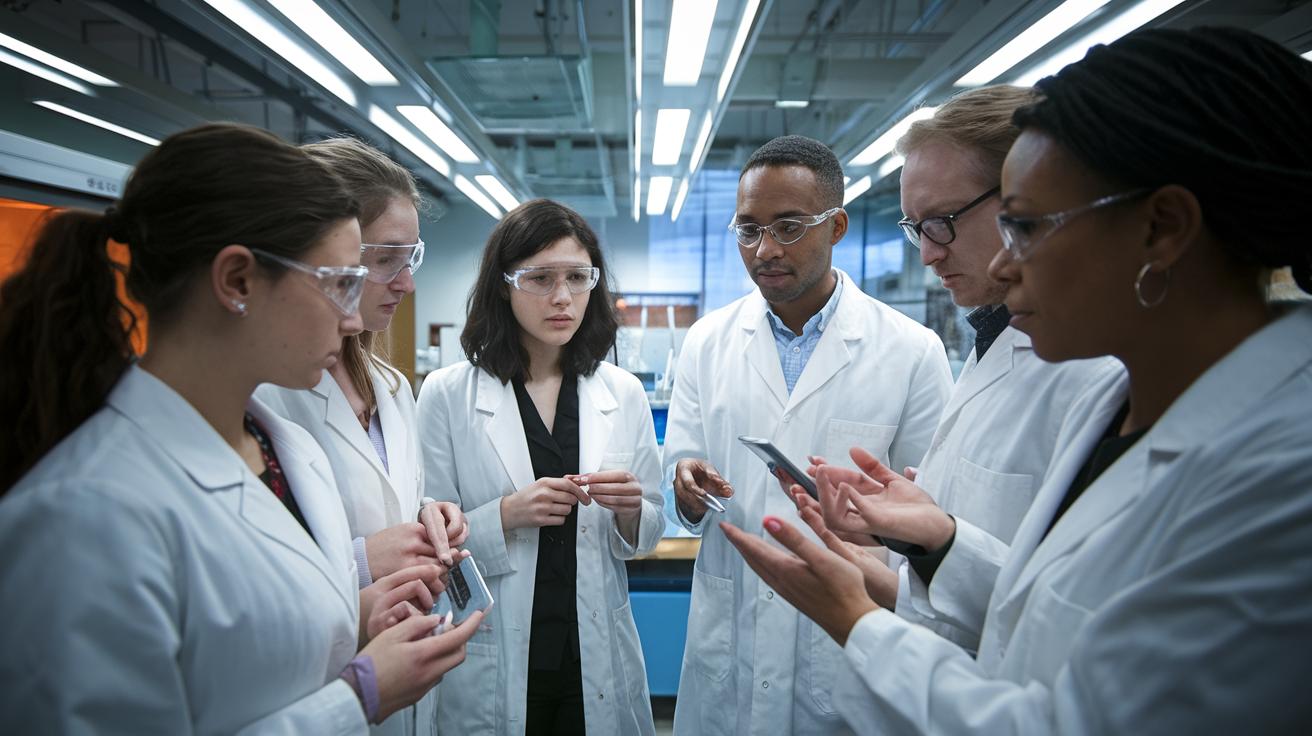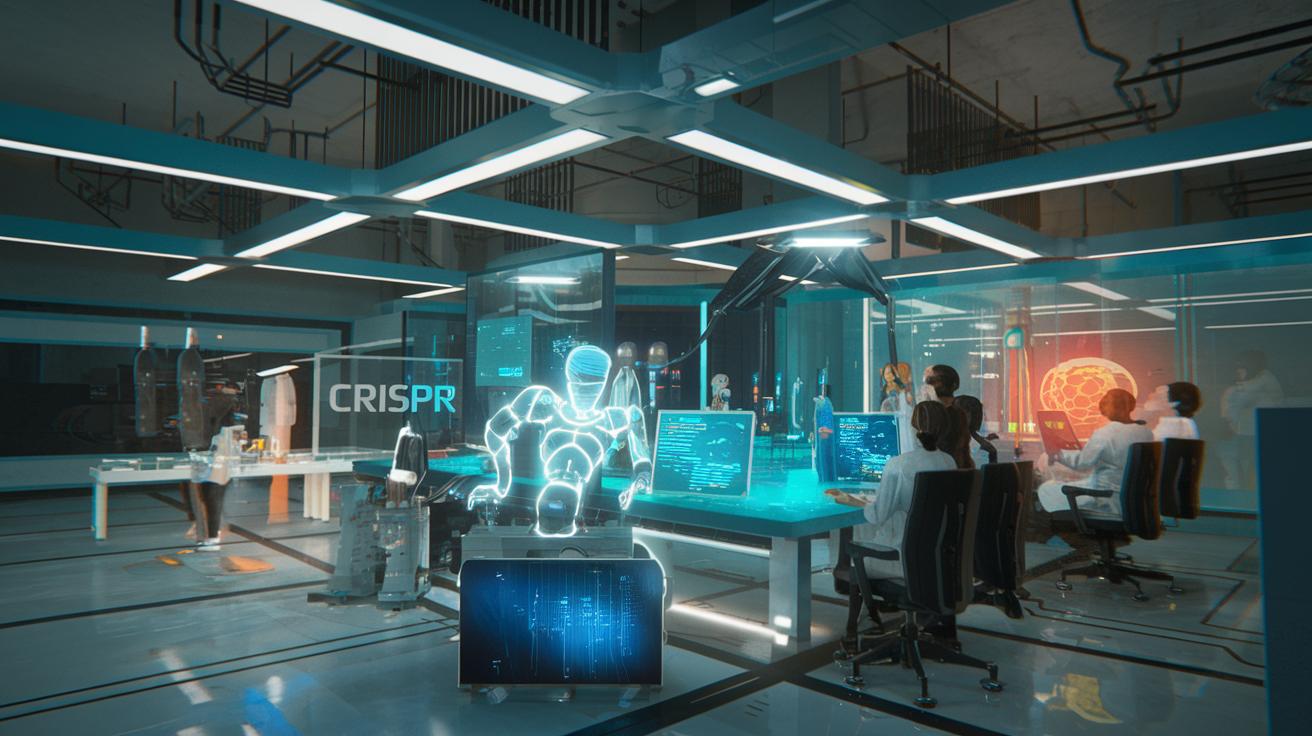Why do certain inventions stand as pillars of human progress, fundamentally altering the course of history? Scientific advancements play a pivotal role, sparking transformative changes across fields such as medicine, communication, and energy. As you explore the awe-inspiring feats in this article, you will uncover the very innovations that solved critical challenges and opened doors to limitless possibilities. These top science milestones not only exemplify human ingenuity but continue to shape the technological landscape, reminding us of the profound impact and timeless relevance of scientific creativity.
The Importance of Scientific Inventions

Scientific inventions have fundamentally reshaped human existence, serving as catalysts for societal evolution and progress. These influential innovations have addressed pressing issues, enabling transformative advancements across a multitude of domains. By solving critical problems, scientific inventions have unlocked new pathways for development, enhancing the quality of life and fostering economic growth. As a result, they have become integral to modern living, underpinning the infrastructure of contemporary society.
- Healthcare
- Transportation
- Communication
- Energy
- Agriculture
The ongoing demand for scientific advancements remains vital as humanity faces increasingly complex global challenges. As transformative technologies continue to evolve, the necessity for innovative solutions persists. The pursuit of new inventions is essential in addressing emerging issues, from environmental sustainability to the intricacies of global connectivity. This perpetual cycle of innovation stands as a testament to human ingenuity, driving progress and paving the way for future generations.
Top Groundbreaking Discoveries in Science History

Scientific discoveries have historically served as pivotal turning points, marking significant milestones in the advancement of human knowledge and capability. These world-changing discoveries have often redefined entire fields, leading to historic breakthroughs that have influenced countless aspects of daily life and global development. The immense impact of these discoveries continues to resonate, underscoring the profound ways in which science shapes civilization.
- Penicillin
The discovery of penicillin by Alexander Fleming in 1928 revolutionized the field of medicine. As the first true antibiotic, penicillin dramatically reduced the number of deaths from bacterial infections, saving millions of lives and laying the groundwork for modern antibiotic therapies. - The Internet
Originally developed as a military project in the late 1960s, the internet has transformed global communication. It has facilitated unprecedented access to information, revolutionized business practices, and connected people across the globe, fundamentally altering societal structures. - The Steam Engine
The invention of the steam engine by James Watt in the late 18th century was a catalyst for the Industrial Revolution. By providing a reliable power source, it enabled mass production and transportation advancements, significantly boosting economic growth and urbanization. - Electricity
The harnessing and practical application of electricity, spearheaded by innovators like Thomas Edison and Nikola Tesla, has had a profound impact on modern society. It powers homes, industries, and technologies, forming the backbone of contemporary infrastructure and technological development. - DNA Structure
The determination of the double-helix structure of DNA by James Watson and Francis Crick in 1953 marked a monumental breakthrough in genetics. This discovery paved the way for advancements in biotechnology, medicine, and our understanding of heredity and evolution.
The lasting influence of these scientific milestones cannot be overstated. Each discovery has not only revolutionized its respective field but also contributed to shaping the trajectory of human progress. As society continues to face new challenges, these foundational breakthroughs serve as a testament to the enduring power of scientific inquiry and innovation. They highlight the potential for future discoveries to further transform and enhance our world.
Iconic Devices and Their Inventors
![]()
Iconic devices represent the pinnacle of human ingenuity, marking celebrated discoveries that have profoundly influenced the fabric of modern society. These innovations not only transformed their specific domains but also set the stage for future technological advancements. The inventions of the light bulb, the telephone, and the airplane stand as testaments to the vision and perseverance of their inventors, who have become synonymous with their groundbreaking creations.
The Light Bulb
The light bulb, invented by Thomas Edison in 1879, revolutionized the way people perceive and utilize light. By developing a practical and long-lasting incandescent bulb, Edison illuminated homes and cities, extending productive hours beyond daylight. His contribution laid the foundation for electrical infrastructure, fundamentally changing how societies function and interact with their environments.
The Telephone
Alexander Graham Bell's invention of the telephone in 1876 redefined communication. By enabling real-time voice transmission over long distances, Bell's device bridged geographical gaps and facilitated immediate interaction between individuals. This invention was pivotal in shaping the global communication network, influencing personal, business, and international relations.
The Airplane
The Wright brothers, Orville and Wilbur, achieved the first powered, controlled flight in 1903 with their invention of the airplane. This groundbreaking achievement opened the skies to human exploration and transportation, fundamentally altering travel and connectivity. The airplane exemplifies the spirit of innovation, pushing the boundaries of what was thought possible and paving the way for the modern aviation industry.
Landmark Inventions and Their Impact

Landmark inventions represent significant engineering feats that have drastically altered the trajectory of human history, shaping societies and enabling advancements across various sectors. These renowned inventions are characterized by their profound ability to solve existing problems and create new opportunities for development. They have not only addressed immediate needs but have also laid the groundwork for future technological progress, driving societal transformation and economic growth.
| Invention | Impact |
|——————-|————————————————————————|
| Printing Press | Revolutionized information dissemination, fostering literacy and education. |
| Electric Motor | Transformed industrial applications, enabling efficient machinery operation. |
| Telegraph | Facilitated rapid long-distance communication, connecting disparate regions. |
| Automobile | Revolutionized transportation, enhancing mobility and urban development. |
The enduring influence of these landmark inventions is evident in their foundational role in modern advancements. The printing press, for instance, democratized access to knowledge, paving the way for the information age. The electric motor's innovation catalyzed industrial automation, setting the stage for contemporary manufacturing practices. Similarly, the telegraph laid the groundwork for modern telecommunications, while the automobile's impact on transportation continues to shape urban landscapes and connectivity. These inventions underscore the importance of innovation in addressing emerging challenges and opportunities, continually driving human progress forward.
The Future of Scientific Innovation

Scientific progress is perpetual, continually reshaping the horizons of technological advancement and societal development. Visionary inventions and cutting-edge technologies emerge as pivotal forces driving this evolution, poised to address complex global challenges. As technological progress accelerates, the significance of these innovations becomes increasingly evident, offering transformative solutions with far-reaching implications for future generations.
- Artificial Intelligence (AI): AI is revolutionizing various sectors, from healthcare to finance, by automating processes and enhancing decision-making capabilities.
- Quantum Computing: This technology promises unprecedented computational power, potentially solving complex problems beyond the reach of classical computers.
- CRISPR Gene Editing: CRISPR holds the potential to revolutionize medicine by enabling precise genetic modifications, opening pathways for treatments of genetic disorders.
- Renewable Energy Technologies: Innovations in solar, wind, and other renewable sources aim to combat climate change by reducing reliance on fossil fuels.
- 5G and Beyond: Advancements in telecommunications are set to enhance connectivity, supporting the development of smart cities and the Internet of Things (IoT).
The implications of these cutting-edge technologies are profound, offering solutions to pressing societal challenges such as energy sustainability, health crises, and global communication. As these innovations mature, they promise to redefine the landscape of human interaction, economic structures, and environmental stewardship. By addressing contemporary issues and anticipating future needs, these visionary inventions stand at the forefront of scientific innovation, paving the way for an era of unprecedented advancement and opportunity.
Final Words
Innovative scientific inventions have reshaped civilization, playing vital roles in medicine, communication, and energy. The most transformative technologies address pivotal challenges, spurring further advancements. From penicillin to the steam engine, historic breakthroughs have left indelible impacts on global progress.
Iconic devices like the light bulb and telephone also highlight the profound influence of their creators. Inventions like the printing press and electric motor illustrate their lasting societal benefits.
Looking towards the future, technologies like AI and gene editing promise new opportunities. The 10 best science inventions ever demonstrate humanity's capacity for innovation and progress.
FAQ
What is the greatest invention ever created?
The greatest invention ever created is often debated, but many consider the internet as it revolutionized communication, information access, and global connectivity, profoundly impacting daily life, economies, and social structures.
What are the top 10 inventions that changed the world?
The top 10 inventions that changed the world typically include the wheel, printing press, electricity, steam engine, telephone, internet, airplane, light bulb, vaccine, and computer, each transforming critical aspects of human life.
What are the five greatest inventions of all time?
The five greatest inventions of all time often encompass the printing press, electricity, internet, steam engine, and computer, each significantly advancing technology and altering societal functions and structures.
What are the top 20 greatest inventions of all time?
The top 20 greatest inventions cover a wide range, including the wheel, printing press, internet, electricity, steam engine, telephone, airplane, light bulb, vaccine, computer, camera, automobile, antibiotics, radio, television, refrigeration, semiconductor, GPS, DNA sequencing, and smartphone.
Who are the top 10 scientists and their inventions?
Top scientists and their inventions often include Thomas Edison with the light bulb, Alexander Graham Bell with the telephone, the Wright brothers with the airplane, James Watt with the steam engine, and Nikola Tesla with AC electricity.


